Campus Sustainability News
News on campus sustainability initiatives, emerging programs, rankings, awards, student initiatives, green teams, and more from across the Cornell University campus.
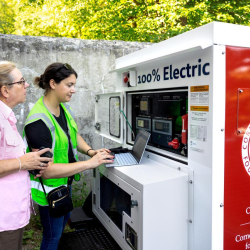
Cornell University is piloting a mobile battery system to replace diesel generators at major events and potentially provide emergency backup power across campus.

Whatever your passion or major, Cornell offers a sustainability course and degree program for you.
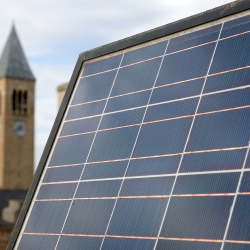
Three more North Campus residential buildings turned on their rooftop solar panels over winter break and now help the campus generate more electricity using renewables.
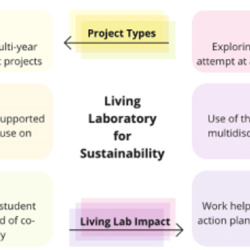
Get inspired by the depth and breadth of projects advancing sustainability!

A Cornell engineer is advancing the field of ‘multi-sector dynamics’ with a new $1.4 million grant from the U.S. Department of Energy that will focus on techniques for better projecting the outcomes of human interactions with the natural world. As scientists and policy makers increasingly turn toward mathematical modeling to help inform their decision making, the project aims to better predict how human systems – such as the economy, urbanization, technology, and agriculture – co-evolve with Earth systems, such as climate, natural resources and wildlife.

Global warming reduction may someday get a cool new tool: climate engineering. The SilverLining Safe Climate Research Initiative has awarded a $500,000 grant to a Cornell engineering researcher, who will model the effects of introducing reflective aerosols into the stratosphere, which could deflect enough sunbeams to reduce Earth’s temperature and limit climate change impact.

The conference featured three days of problem-solving workshops, such as finding ways to engage students with the United Nations’ Sustainable Development Goals.
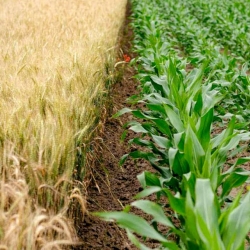
An important tactic for slowing climate change is for private companies to reduce their greenhouse gas emissions, but knowing exactly how much they’re emitting can be a challenge. To address this need, researchers in the College of Agriculture and Life Sciences (CALS) have developed an online greenhouse gas (GHG) emissions accounting tool, FAST-GHG, to help quantify these emissions in crop production.
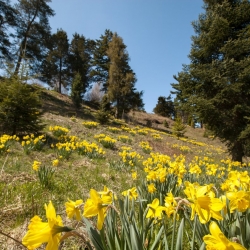
Soil holds about three times as much organic carbon as the atmosphere, which means that making strategic changes to how soil systems are used could play a major role in combating climate change. With that in mind, two Cornell soil scientists have helped develop a powerful new tool that will help researchers and policymakers map the global potential for carbon sequestration. Soils Revealed is an open-access, interactive platform that uses cutting-edge technology to model how soil organic carbon has fluctuated over the last 11,000 years and to project soil’s future carbon-storing capacity.
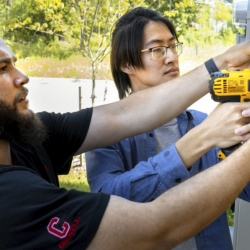
The National Science Foundation has awarded $1.5 million to Cornell engineers and researchers to help them bridge New York’s digital divide by designing the nation’s first statewide Internet of Things public infrastructure.
